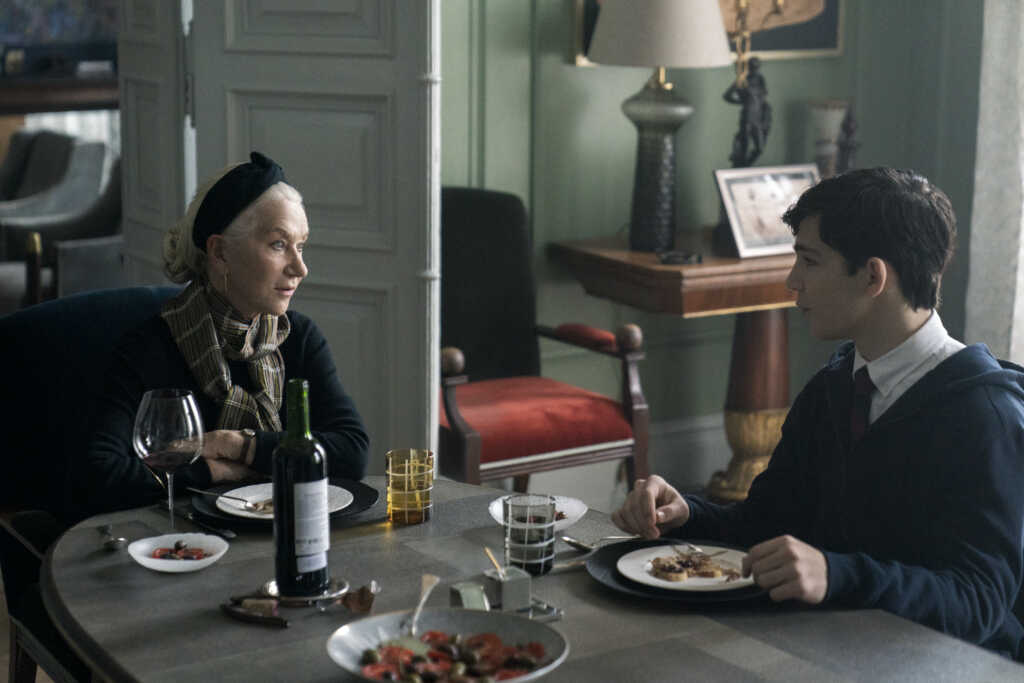As a Jewish coming-of-age story, “White Bird,” might not fit the conventional mold from the studio that brought to theaters films like “I Can Only Imagine” and “Jesus Revolution,” but the new release won over its faith-based partner with just one scene.
Executive producer Andy Erwin, co-founder of Kingdom Story Company, a Lionsgate brand, joined CBN’s “Quick Start” this week to talk about the “White Bird” scene that “really sold” him on the film, a follow-up to the 2017 blockbuster success, “Wonder.”
Listen to the latest episode of “Quick Start” 👇
“What really sold me on this was the scene when the Nazis, the SS officers, are coming in to round up all the children at the school and they’re taking all the school kids and they’re loading them into trucks, saying they’re going to reunite them with their families, but they’re taking the Jewish children to the concentration camp,” said Erwin. “The priest who was the headmaster at the school and one of the teachers who’s a nun steps out and they put their lives in harm’s way for these little Jewish kids. … The nun says, ‘I go where my children go,’ and she gets on the transport with them, knowing she’s going to, likely, her death at a concentration camp. That showed the power of what we believe in action.”
The filmmaker described the vignette as a Nazi-era recasting of the biblical story of the Good Samaritan.
In Jesus’ parable, recorded in Luke 10, a man is journeying from Jerusalem to Jericho when he is attacked by robbers who beat him, steal his belongings, and leave him for dead. After a priest and a Levite pass him by, a Samaritan stops, cares for the man, and takes him to an inn, where the kind-hearted passerby pays for his treatment.
That basic lesson is summed up at the end of “White Bird” by Helen Mirren’s character.
“There’s a line at the end of the film where Helen Mirren’s character is talking to her grandson Julian,” Erwin explained. “She said, ‘When an act of kindness can cost you your life, it becomes somewhat of a miracle.’ That line sold me. … Kindness is cheap if it doesn’t cost you anything. But if kindness can cost you everything, that is a miracle. And I think, right now, we’re in a world desperate for miracles, for people to have the courage to stand up for what’s right.”
The new film, debuting in theaters Friday, picks up where 2017’s “Wonder” left off. “White Bird” chronicles the story of former school bully Julian (Orlando Schwerdt), who isolates himself at his new boarding school in Manhattan, where he’s caught mistreating yet another student. That’s when Julian’s grand-mère, Sara, played by Mirren, steps in and begins recalling her story of growing up in Nazi-occupied French village in 1942, where much of the film is set.
In order for Kingdom Story Company to sign on to a movie, Erwin said, the story “has to check our values” as Christians, adding the new release “absolutely did in a way that was unexpected.”
That, though, begs the question: what is the right role for Christian filmmakers in Hollywood?
“The point of our job is not to — we’re not there to dispense all the theology,” Erwin said. “We’re not pastors; we’re storytellers. And the power is in starting the conversation, in asking the right question, and presenting the opportunity for the Gospel. It’s called emotional jamming: if I can jam a wedge between somebody’s heart and their head and you make them feel something for two hours — or even just for a minute — then that feeling will begin to challenge their thinking and they’ll go seek out answers.”
The Christian producer said that the strategy of using people’s heartstrings to communicate truths and start faith conversations is modeled after Jesus communicating with His followers through storytelling and through parables.
“Jesus did that with His parables,” Erwin said. “He taught in two different ways — He had His teaching, and He had His parables. … He was a master storyteller. He would tell a story that would engage the audience emotionally that probably caused more questions than gave answers.”
Jesus’ teachings would spark conversation and reflection. Often, Erwin suggested, Jesus’ lessons would lead people to come to Him to find the “rest of the story,” the full Gospel.
“I believe the church is designed for the rest of the story,” he asserted. “That is absolutely for us as a body of believers to be able to say, ‘Let me tell you the rest about what you’re feeling.’ Our job as filmmakers is to instigate a conversation, move people emotionally, entertain them in a way where their guards go down and, when their guards go down, all of the sudden you’re able to insert a moment of truth that causes them to say, ‘Huh, what was that? I need to understand more of that,’ and it will take root if you do your job well and emotionally engage your audience.”
Some films — like “Jesus Revolution” — are more “overt” in their presentation of a Gospel message and others — like “Ordinary Angels” — are more “subversive,” Erwin said. Regardless of the film, the intention with Kingdom Story Company movies is to “plant that seed” of the Gospel and “then step away and let God do His thing and let the church step in and tell the rest of the story.”
To purchase tickets for or to learn more about “White Bird,” click here.
***As the number of voices facing big-tech censorship continues to grow, please sign up for Faithwire’s daily newsletter and download the CBN News app, developed by our parent company, to stay up-to-date with the latest news from a distinctly Christian perspective.***



